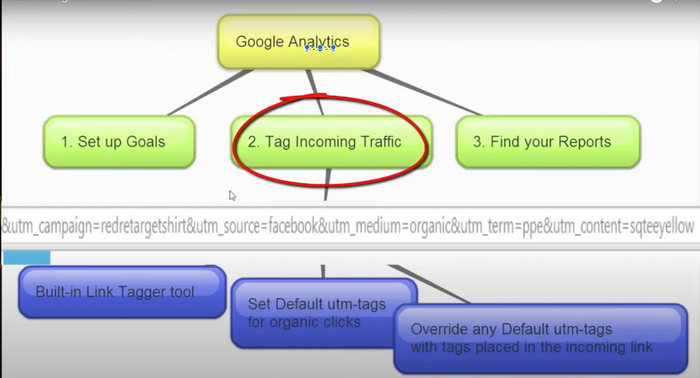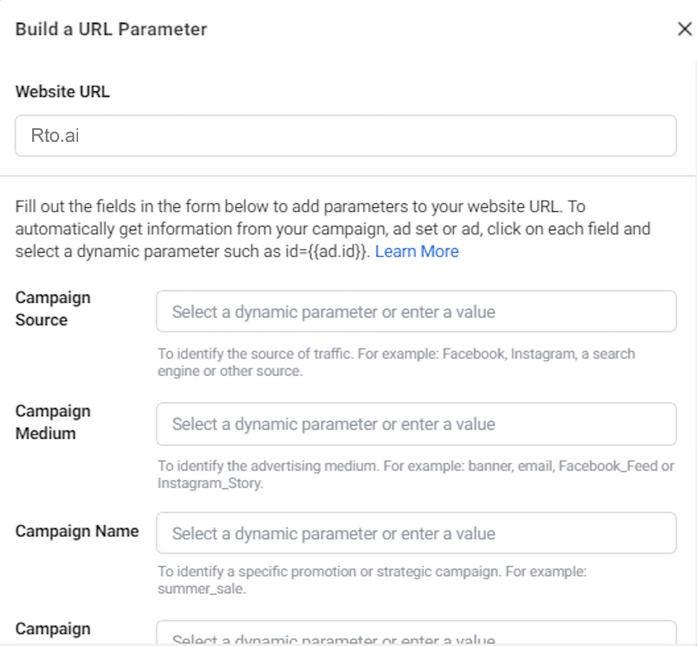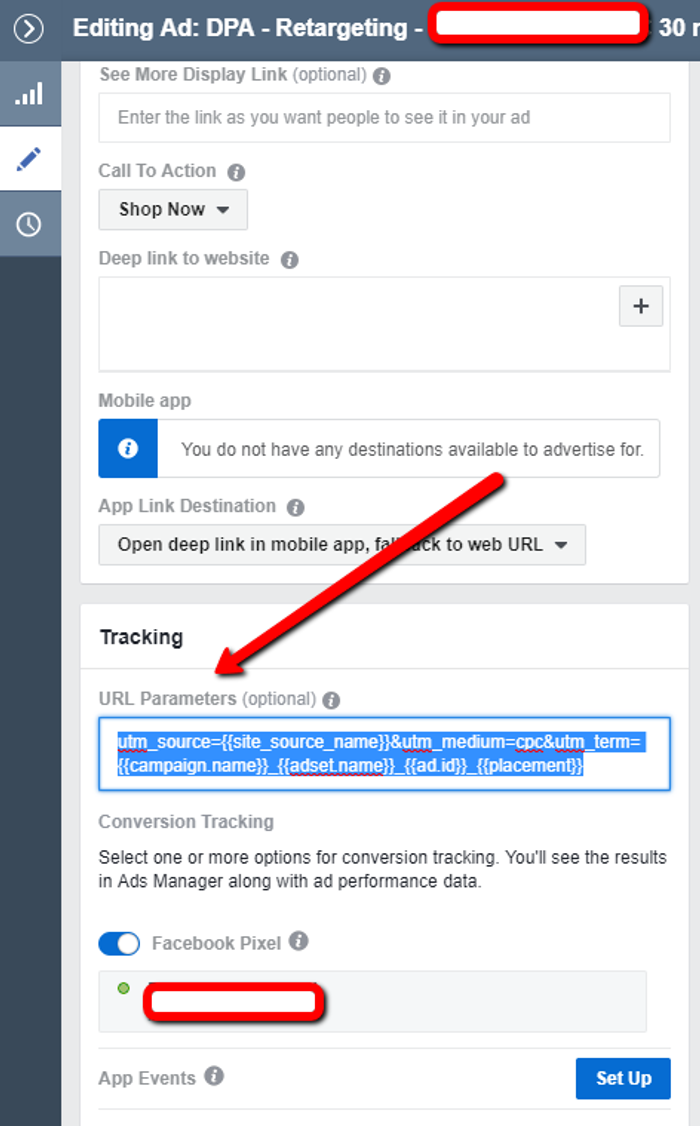What's going on with the user privacy changes in iOS 14 and their impact on app tracking?
iOS 14 has brought some major changes to its privacy features to give more control to its users!
These changes will impact tracking for half of all mobile device users in the United States. It will also affect advertising platforms like Facebook and Google (and they are not very happy with this update).
In this guide, we will see how the changes in iOS 14 will impact tracking and analytics and who are the stakeholders.
Collecting and Protecting Personal Data
New laws and regulations continually respond to changes in data tracking.
For example, the General Data Protection Regulation (GDPR) mandates user consent and protection of personal data in the European Union.
Other laws like the California Consumer Privacy Act (CCPA) help protect data in the United States.
These legal mandates help ensure proper data handling from tech businesses. And for companies that generate revenue primarily from advertising (think: Facebook and Google), this legislation is especially important.
But some businesses have prioritized data privacy all on their own. One company just stepped up to really take it to the next level: Apple.
Apple has consistently branded itself as the privacy-conscious company. Now, it's spotlighting privacy with iOS 14.
What makes Apple's approach so different from that of other big tech companies?
It all comes down to the business model.
User data is a huge asset to companies that rely primarily on ad revenue. Data regulation practices can be restrictive for these types of businesses.
But Apple's central business model is selling devices. Strict data regulation has a much smaller effect on their revenue. To the savvy consumer, data-secure devices are even more desirable. Data privacy actually becomes profitable instead of restrictive.
Announced in June 2020 at Apple's Worldwide Developers Conference, iOS 14 launched in September. And by December 15, 2020, 72% of all Apple devices had already upgraded to the new operating system.
With so many users on iOS 14, what does this mean for tracking and analytics?
iOS 14 Changes that Impact Tracking
IDFA (Identifier for Advertisers)
IDFA is similar to advertising cookies, but for mobile apps. It helps to identify a user when that user revisits an app.
With iOS 14, apps will now be required to get permission from the users to use IDFA.
It is an essential part of any readvertising/remarketing campaign. Such campaigns have become quite popular in recent times and thus a lot of advertisers use IDFAs for tracking.
If the IDFA is not available to us, it becomes difficult to identify users and track them. This makes it tough to put our finger on the exact marketing efforts that are working most effectively!
Privacy Changes
The next big change that has come about with iOS 14 is how it treats privacy policies.
Apple will now ask all the apps to provide their privacy practices before onboarding the Apple Store. And if an app uses a third-party code, it will need to provide the details on any data that is collected and how that data is handled.
The new policy also allows users to request data deletion. This provision is similar to the "right to erasure" or the "right to be forgotten" clause of the GDPR in Europe. Data deletion aims to empower the user to control their own data.
But this provision also gives an immense amount of power to Apple.
Apple rules the App Store, which has huge monetary value. With these rules, Apple will have the authority to remove any app from its store for non-compliance. And whether Apple chooses to use this power or abuse it is in its own hands.
User Permission for Tracking Data
Apple has introduced a new App Tracking Transparency framework, under which you must request permission from the user to track data.
Under this framework, you can only access the user device's identifier if the user grants permission.
![]()
It is possible that many users will deny permission to be tracked for targeted advertisements. Advertisers might have to prepare to settle with generic advertisements that aren't as profitable.
Who Will Be Affected By The Changes in iOS 14?
These new changes will definitely affect all the stakeholders of the digital marketing industry in some or the other way. But some entities will be affected more than the others.
App Developers
App developers have new benchmarks to meet if they want to sell their products in the App Store.
Besides compliance with new privacy requirements, developers also need to program their apps with automatic pop-ups to ask for user permission to do any kind of tracking.
Then, if the user denies the permission to track data, the advertisers will then have to show only generic advertisements. Realistically, this will affect revenue and the bottom line.
Moving forward, app developers may be better off with a new revenue model. They'll probably either charge a fixed price for their apps or a subscription-based fee.
Again, the one entity that benefits the most out of this revenue model is Apple.
Currently, Apple takes 20-30% of every payment on the App Store as a fee. Converting from free apps to paid ones will definitely give a boost to Apple's profits. So, it is not surprising that companies like Facebook (with free apps that rely on ad revenue) are less than happy with this move.
Advertising Platforms
When advertisers can't target specific audiences or track campaign success, they'll likely find less value in advertising platforms.
For example, techniques currently used by platforms like Facebook Audience Network might become ineffective.
Since fewer ads shown through the platform will result in clicks or conversions, these platforms may lose popularity and clients if they don't adapt to Apple's new policies.
Google, on the other hand, has decided to go with the flow. It has updated Google AdMob's privacy features and is making the best out of the situation.
Advertisers
And now the big bottom line: Will you, as advertisers, lose any data? How much chaos will this create in your analytics?
Firstly, the Safari browser is still the same.
So anything that works on the Safari browser remains unaffected. This means the advertisers can still use Facebook Pixel in the same way without losing any of their Safari audience.
Secondly, marketing on Facebook itself won’t change much.
The Facebook app requires a user login, so it has its own system to identify users. Thus, retargeting users on Facebook will only be partially affected.
This generally applies to all parts of the Facebook ecosystem (including Instagram and WhatsApp). But anything that is outside Facebook's infrastructure might not have as big of a targeting possibility anymore.
With this, the advertisers will have smaller and less powerful platforms for marketing. This will most likely impact their overall conversions and revenue.
Additionally, with fewer slots for ads (i.e. short supply for similar demand), advertising will become more expensive in general.
This might get you thinking: can you still get low-cost clicks through the Facebook Audience Network on iOS?
To know for sure, we'll need to keep monitoring the new advertisement parameters for a while—but we hope to find a positive solution.
But remember that advertisers have always worked with imperfect tracking data. This isn't really new for us.
The best path forward is to understand how these changes will affect the quality of data, then tweak their tracking accordingly to continue maximizing campaign performance.
4 Smart Steps to Brace for iOS 14.5 Impact
It's obvious that when businesses launch conversion campaigns, they will have limited user data. Although the very idea can be daunting, we encourage you to focus on these 4 initial steps to create a better strategy for your campaigns, as you prepare for the coming iOS 14 change:
- Personalize with Owned Brand Data
- Prioritize Specific Conversion Events
- Unlock More Data with UTM
1. Personalize with Owned Brand Data
Of course, to a certain degree, personalization and contextualization will be harder to achieve. However, it won't be an impossible task. Now more than ever, brands are going to rely on owned data, and then make the most of benefits such as geo personalization targeting, setting up multi-language campaigns, using personalized offers and weather-based creatives, in addition to relying on video ads for better engagement.
Additionally, you can still differentiate between ads that brought these results and ads that are not working. Brands can now embrace automation and get even more creative with Facebook advertising, effectively focusing on long-term value rather than short-term profit.
2. Prioritize Specific Conversion Events
Sure, data showing how people made the purchase is important. When the update arrives though, you might want to flip things around in your campaign strategy. This time around, you may want to watch for other specific events in your Facebook Performance Measurement data. For instance, if you only get information after the purchase is being made, try to focus on last-click conversion events in FB and GA metrics. Think of it as narrowing down your options and looking at what matters – the conversion itself, rather than specific events leading up to it. This is how iOS 14 Facebook tracking becomes a valuable addition to your overall strategy.
3. Unlock More Data with UTM Tracking
Have you ever wondered how to unleash the power of Google Analytics to find out everything you'd ever want to know about your traffic and conversions from Facebook ads?
Google Analytics is the behemoth of analytics tools, but as with so many things that Google makes, it’s kind of hard to make it work well and pry the information that you need out of it.
There are three key steps to using Google Analytics the right way
- First is setting up your conversion goals which are simple enough. It can be pretty intimidating again because things aren't necessarily where you expect them to be in just about anything that Google makes. You need to set up your goals first; otherwise, Google won't track your conversions and then you know all the traffic of all the incoming tracking of the incoming traffic is only worth so much if you can't see the conversions now.

Second step is the complicated part, and that is to tag your traffic with UTM parameters as much as possible.
Third and the final step is digging into the reports to analyze the results. The reporting should be as user-friendly as possible so you're not having to compile multiple spreadsheets to track the progress of your ad spend.
What Are UTM Tags?
UTM parameters are a string of gobbledygook that Google uses to
classify, categorize, and analyze the traffic that comes into your Shopify store.
The UTM parameter is a crucial second step in fully understanding exactly where your traffic is coming from and what is converting to sales.
Can we use UTM tags for Dynamic Product Ads?
Yes, brands use UTM tags on Facebook advertising if you are driving traffic from different ads to the same post id. When you do this, you can set up different conversion events by tracking organic traffic and conversions for each post, and paid traffic and conversions for each ad, ad set, and campaign!
What Expectations Should Brands Have for Tracking UTM Tags on Facebook Ads?
There seems to be an over-expectation on the tracking features of the Facebook Pixel and Facebook reports in general. They are not supposed to track all conversions on your campaigns. FB reports are only tracking traffic and conversions from paid impressions, not organic impressions!
Think about it in terms of Adwords: You wouldn't expect Adwords stats to show results from organic Google searches. You need a different tool to track all traffic and conversions. With Google Adwords, of course, there is its BFF, Google Analytics. That seems natural. But there is no such tool within Facebook.So... use Google Analytics for that, too. All you need to do is use utm-tags in the URL tag field in your ads.
What do UTM Tags look like for Facebook ads?
UTM_source: Facebook
UTM_medium: Catret
UTM_campaign: Product slug (URL)
UTM_content: any rr-track tags that are added to the product


The easiest way to use UTM Tags is by adding the parameter to the tag such as: utm_medium=cpc&utm_term=DPA-ATC30-notpur-60
You can also use the shortcode merge fields provided by Facebook. We use the standard string as seen in the image above. Here it is so you can easily copy and paste it:
utm_source={{site_source_name}}&utm_medium=cpc&utm_term={{campaign.name}}_{{adset.name}}_{{ad.id}}_{{placement}}
One of the most important features of the tags in the feed is that utm_campaign is used for the product slug, which allows you to identify the product that was clicked in a DPA ad. This is impossible if you are not using dynamic UTM tags in the feed itself. To make use of this feature you should ensure that you don't overwrite the utm_campaign value in the URL tags field!
Conclusion
We all can agree that the changes in iOS 14 are significant and can't be ignored!
Advertising platforms like Facebook have criticized them for being intrusive. With features like the consent popup, users are sure to opt out of getting tracked.
Advertisers will lose some advertising data or targeting possibilities. There's no getting around that. We already know some possible workarounds to minimize the effect, but they are not end-all solutions.
It is more important to accept these changes like we had accepted GDPR, CCPA, and ITP 2.1. Such changes are here to stay, and we should expect similar changes in the coming years. The technology and marketing industry is constantly changing, especially where user privacy is concerned.
We'll need to learn to work with the data that we have, see what its impact is and then adjust our marketing accordingly. We can change our budget around, change the targeting around and still find the most profitable spaces for us.